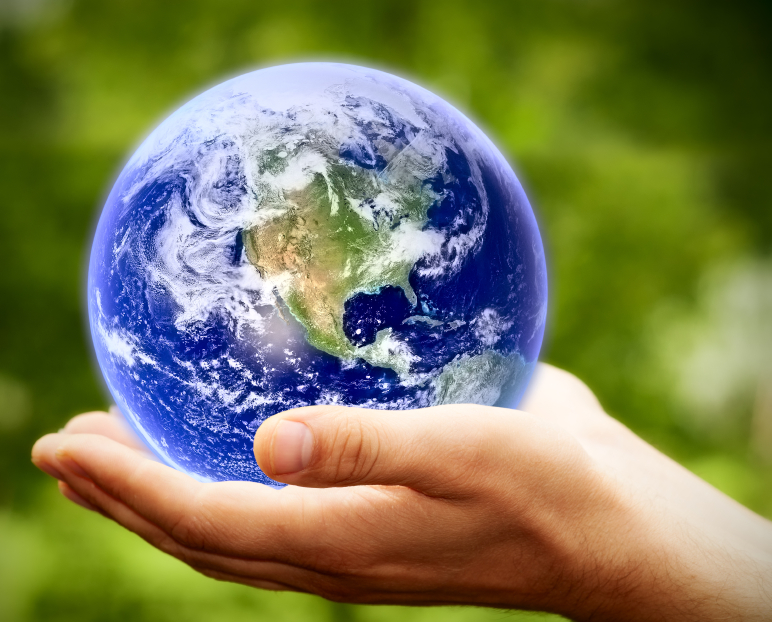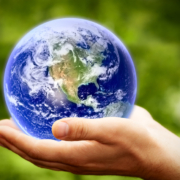To Do What’s Right (reading Eikev through the lens of covid-19)
 I made it three verses into this week’s Torah portion, Eikev, before being brought up short:
I made it three verses into this week’s Torah portion, Eikev, before being brought up short:
“And if you do obey these rules and observe them carefully… God will ward off from you all sickness…” (Deut. 7:12, 15)
My first thought was: wow, that verse has not aged well in this coronavirus moment. As we watch illness ravage the nation like a wildfire, the promise of health and safety feels off-key. Or at least, the connection between doing mitzvot and being healthy feels off-key, because it suggests that someone who falls ill is somehow wicked, or is not following Torah’s instructions for spiritual and ethical living.
And then I thought: there’s another way to read these verses.
This isn’t about whether or not a single individual does what’s right. We all know that it’s possible to lead a spiritual and ethical life, rich with mitzvot, and still fall ill. And we all know that it’s possible to do all the right things in this pandemic — washing our hands, wearing our masks, socially-distancing and staying home — and yet still be at risk of falling ill if someone carrying the virus coughs on us.
But what if Torah is trying this week to teach us that what matters is for the collective to do what’s right? For the community to pull together and together commit to following the best practices that science and authentic spiritual life can offer us… not (only) for our own sakes but also for the sake of others who may be older, or medically vulnerable, or living with preexisting conditions that put us at greater risk?
“When we obey these mitzvot and observe them carefully,” that’s how God protects us from sickness, acting through us in the ways we care for each other. It’s not a guarantee that no one will get sick — nothing can offer that guarantee — but it’s what’s in our hands to do. As we sometimes sing on Friday nights, “Ours are the arms, the fingers, the voices.” Ours are God’s hands, and this moment calls us to turn our hands toward keeping each other safe.
“And if you do obey these rules and observe them carefully…” The classical tradition links this back to Exodus 15, where God similarly tells us that if we follow the mitzvot and do all the right things, then God won’t plague us with the unnatural illnesses that the tradition sees as divine punishment. “Ki ani YHVH rofecha,” says Torah (Ex. 15:26) — “For I am YHVH your Healer.”
One way to understand that is as a lesson about the interconnectedness of all things, and how our choices have collective impact. If we don’t take care of the planet’s fragile environment, then the conditions will be right for newer and more terrible illnesses to arise and spread. But if we do what’s right by our planet, then we protect ourselves and each other from that terrible outcome.
This too feels to me like a teaching about our responsibility to each other and to the whole of which we are a part. When we act in ways that take care of our planet, when we act in ways that take care of each other and protect each others’ health, we are embodying the aspect of God that we call Healer.
It’s poignant to read these verses on the runway to the Days of Awe. Usually at this season we’re preparing for our community’s biggest in-person gatherings of the year. This year’s Days of Awe will be different. Our challenge this year is to make our homes into sacred space, and to find connections in each others’ faces and voices over Zoom, as we protect each other by staying physically apart.
I know that for some of us, the prospect of Zoom-based High Holidays feels like a loss. Maybe we can’t imagine how it will work. Or we’re tired of Zoom and wish life could go back to normal. Or we’re afraid it won’t feel meaningful and real the way we want it to. Those feelings of loss are real, and I honor them. (I even share them.) And… I believe that these are the mitzvot the current moment asks of us.
This moment asks us to practice the mitzvah of masking, the mitzvah of social distancing, the mitzvah of gathering over Zoom. So that we can keep covid-19 out of our beloved community, and in so doing, can hasten the day when we will all be able to gather safely in person again, here and everywhere.
This is Rabbi Rachel’s d’varling from Shabbat morning Zoom services at CBI (cross-posted to Velveteen Rabbi.)






